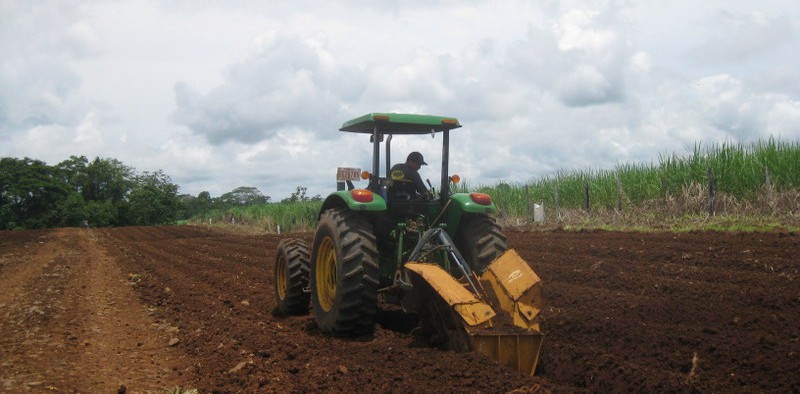Much changed in El Muelle San Carlos since my last visit to the plantation, which was to be expected. My last trip was just before peak season, when hirings were up, wages were about to rise, and optimism abounded. High season ended in July, and the layoffs, which happen every year, have reached much farther this time. Dole has cut nearly 200 workers since last year’s high season, some of whom had been with the company over six years.
It’s not totally clear to me what’s going on. Part of it is streamlining the business and increasing efficiency, but workers were told not to worry about their jobs as long as they follow rules, which does not appear to be the reality. Workers allege that the company has fired (or pushed out) over half of the Asociacion Solidarista (a collective bargaining entity) leadership since April and one member of the permanent committee. Prior to this year, no such firings had ever occurred.
The story behind the firing is really messy. Turns out the treasurer of the Asociacion was also the HR guy for the company. He left a checkbook out, 7 checks were forged (in his name) and the money was never found. The details are still foggy, but from the start there’s a problem when the guy responsible for hiring/firing is also running the books for the “union”. Much of the workforce thinks he stole the money. The company hired a PI to look into it, but the findings haven’t been made public. I don’t know who stole the money, but among the dozens of workers I met, non thought the people who were fired took the money, and all thought the HR guy was a nightmare. His name came up in every interview and every meeting – never favorably. His predecessor was beloved (he quit to run his own farm).
From the department of good news: those documents on environmental impacts and monitoring were available at the government ministry (SETENA)
Monitoring is very limited, especially compared to what is seen in extractive industries. They don’t do sediment monitoring, all they look for is pesticides. This seems inadequate, as pineapples are themselves wildly acidic, and pineapple waste was responsible for at least one significant fish kill on the property we’re assessing.
Tilapia farmers, teachers and general residents living in neighboring communities have found Dole to be great at promising things and inconsistent in follow-through. One tilapia farmer’s fish were killed through seepage. He told the company, they agreed it was their fault, and they promised to replace the fish and repair the damage. As he tells it, a month later, nothing happened. Then he brought them the video of the fish all dying and floating to the surface… suddenly his lake was dredged and his fish stock replaced with a hefty, hefty check. The other fish farmer whose fish were killed didn’t take a video… they say that, three years later, they’ve still seen no cash from the company.
Dole doesn’t mean to be bad, but there is no strong sense of duty to surrounding communities. The HR guy is in charge of community relations (which says a lot). The roads go unrepaired during high season, the promises go unfulfilled until lawsuits are threatened… This project looks like a textbook representation of what UN Special Rapporteur on Business and Human Rights John Ruggie admonishes for letting small grievances turn into significant human rights campaigns.
Pineapples are still a nonissue in the US, but they’re a hot-button topic in Costa Rica. As soon as some savvy North American NGO discovers the issue and starts making recordings, these communities could be the people who will contribute to campaigns.
There is an interesting divide between the senior-most leadership and the slightly lower level management. Personnel from the head office have been receptive to human rights arguments, but a lot of the project-level management show indifference to public welfare. On the decimation of local education, on said, “there are always losers in progress.” Persuading the company that it has responsibility for the misery in San Jorge will be difficult – airtight logic will have to include the ways the government, too, fails these people.
Speaking of government failures – government assumed that Dole’s private security would look after towns, so they removed police. Now theft is reportedly on the rise because poor migrants watch houses, learn when people are at work, and rob them. The people of San Jorge and the surroundings say there have been 3-4 break-ins in the past 6 months. It’s a rough approximation, but it still suggests the problem is real.
The communities also blame pineapples for community deterioration, family deterioration, and kids running amok (ditching school, getting bad grades, collaborating with thieves, because both parents work and they’re unsupervised). I’m not persuaded that this is Dole’s fault, but the district education minister, the teacher, and the community leaders all are. Pineapple production has been, to some extent, equated with the Dole name, despite the fact that Dole is the most responsible producer in the area.


